Overview
The program was created between 1994 [2] and 1998, [3] [4] and there are currently more than 4,200 Junior Canadian Rangers in 135 JCR Patrols in remote and isolated communities across Canada, many of which are in the territory of Nunavut, and with Ontario having almost 1,000 Junior Rangers across 20 First Nations in 2017. [2] Only the provinces of Prince Edward Island, New Brunswick, and Nova Scotia do not have JCRs. Junior Canadian Rangers are easily recognized by their green sweatshirts and ball caps.
Training is delivered to JCRs by Canadian Rangers, civilian Adult Committee member, or community volunteers and is categorized under one of three "circles of learning". These are: Community Traditional skills, Canadian Ranger skills, and Life Skills. Most JCR Patrols conduct some training activities "on the land" to help prepare the youth to survive in the outdoors.
The JCR Program offers a series of Enhanced Training Sessions (summer camps), which are designed to "expand the horizons" of selected youth by offering training, recreational, and cultural opportunities that may not be available in their local community.
The JCR Program is funded by the Government of Canada, through DND and the Canadian Armed Forces. The Canadian Ranger Patrol Groups, under command of the Canadian Army, oversees the conduct of the program at a regional or provincial level.
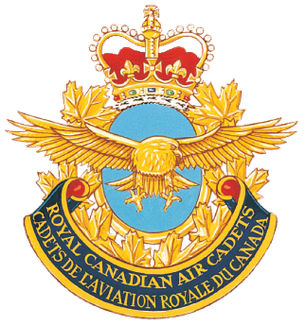
The Royal Canadian Air Cadets is a Canadian national youth program for young individuals aged 12 to 18. Under the authority of the National Defence Act, the program is administered by the Canadian Forces (CF) and funded through the Department of National Defence (DND). Additional support is provided by the civilian Air Cadet League of Canada (ACLC). Together with the Royal Canadian Sea Cadets and Royal Canadian Army Cadets, it forms the "largest federally funded youth program in the country". Cadets are not members of the military and are not obliged to join the Canadian Armed Forces.

Katimavik is a registered charity that engages Canadian youth through volunteer work. Katimavik provides opportunities for young Canadians to participate in five to six-month periods of community service throughout the country via the National Experience program. It was founded in 1977 by the late Senator Jacques Hébert and the Honourable Barney Danson, a former Minister of National Defence.
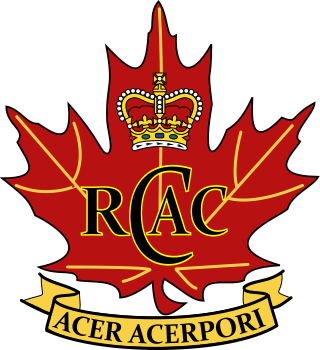
The Royal Canadian Army Cadets is a national Canadian youth program sponsored by the Canadian Armed Forces and the civilian Army Cadet League of Canada. Under the authority of the National Defence Act, the program is administered by the Canadian Armed Forces and funded through the Department of National Defence. Additionally, the civilian partner of the Royal Canadian Army Cadets, the Army Cadet League of Canada, also ensures financial, accommodations and transportation support for RCAC programs and services at a community level.

The National Cadet Corps (NCC) is the youth wing of the Indian Armed Forces with its headquarters in New Delhi, India. It is open to school and college students on voluntary basis as a Tri-Services Organisation, comprising the Army, the Navy and the Air Force. Cadets are given basic military training in small arms and drill. Officers and cadets have no liability for active military service once they complete their course.
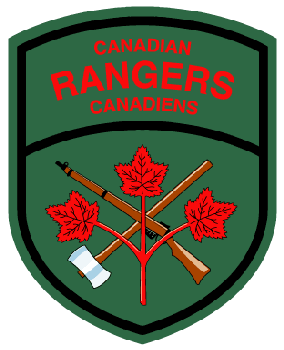
The Canadian Rangers are a sub-component of the Canadian Army under the Canadian Armed Forces reserves that provides a limited military presence in regions of Canada where stationing conventional Army units would not be practical or economically viable. Formally established on May 23, 1947, the Canadian Rangers employs around 5,000 Rangers.
The Regional Force Surveillance Units (RFSUs) are specialised infantry units of the Australian Army Reserve responsible for patrolling northern Australia. Collectively, the RFSUs form the Regional Force Surveillance Group commanded by a Colonel based at the 2nd Division Headquarters in Sydney. The RFSUs conduct regular operational patrols during peacetime, and are composed primarily of Reservists who live within the area of operations. There are currently three battalion-sized RFSUs:

The Cayman Islands Cadet Corps (CICC) is a youth organisation in the Cayman Islands for male and female secondary school students between age 12 and 17. It was established in March 2002.

The Air Cadet League of Canada is a volunteer organization that provides financial support and oversight to the Royal Canadian Air Cadets. The Air Cadet League owns all of the aircraft used in the Air Cadet Gliding Program. The League is organized into three levels: the National, the Provincial, and the local level, each of which is responsible for different areas of the League.

The Australian Defence Force Cadets (ADFC) consists of three Australian Defence Force affiliated, community-based, youth development organisations of approximately 27,834 cadets and 4,405 cadet staff in 579 units and squadrons across Australia. Coordination of the Australian Defence Force Cadets is via the ADF HQ unit called Reserve and Youth Division, with Commander ADF Cadets - directly accountable to VCDF. The ADFC is funded by the Australian Government through the Department of Defence, in partnership with the community.
Hawk Mountain Ranger School (HMRS) is a Search and Rescue school operated by the Pennsylvania Wing of the Civil Air Patrol (CAP). The school is located in the foothills of the Blue Mountains on 77 acres of Civil Air Patrol corporate property. The Summer School, which is the school's longest and most popular event, is a National Cadet Special Activity.
Leadership training in the Boy Scouts of America (BSA) includes training on how to administer the Scouting program, outdoor skills training for adults and youth, and leadership development courses for adults and youth. Some of these courses like Youth Protection Training are mandatory. Most of the courses are offered by the local council, while a few are hosted at the national level, currently at Philmont Training Center in New Mexico. They are available to members of all of the Boy Scout programs, including Cub Scouts, Boy Scouts, Explorer Posts, and Venturing Crews.
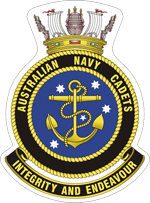
The Australian Navy Cadets (ANC) is a youth development organisation supported by the Royal Australian Navy, with a focus on the maritime domain. The organisation promotes activities, both on land and in water, with the key objectives of building self-confidence and developing teamwork and leadership skills.

Connaught Cadet Training Centre is a training centre for Royal Canadian Army Cadets, Royal Canadian Air Cadets, and Royal Canadian Sea Cadets since 1989. It is located at the Connaught Range and Primary Training Centre (CRPTC), in Ottawa, Ontario, and trains approximately 500 cadets each summer in 3, 4, 6, and 9 week courses. Administered by the Canadian Forces, the program is funded through the Department of National Defence.

The Battlefords Army Cadets is a free youth program open to youth aged 12 – 18 sponsored by the Canadian Forces and the civilian Army Cadet League of Canada. 2537 Battlefords Army Cadets are affiliated with the North Saskatchewan Regiment and cadets may wear the badges and accoutrements of the affiliated unit.

The Army Reserve Officer Training Corps (AROTC) is the United States Army component of the Reserve Officers' Training Corps. It is the largest Reserve Officer Training Corps (ROTC) program which is a group of college and university-based officer training programs for training commissioned officers for the United States Army and its reserves components: the Army Reserves and the Army National Guard. There are over 30,000 Army ROTC cadets enrolled in 274 ROTC programs at colleges and universities throughout the United States. These schools are categorized as Military Colleges (MC), Military Junior Colleges (MJC) and Civilian Colleges (CC).
There are many national organisations in the United Kingdom and its overseas territories that have been established to provide services to people under the age of 18.
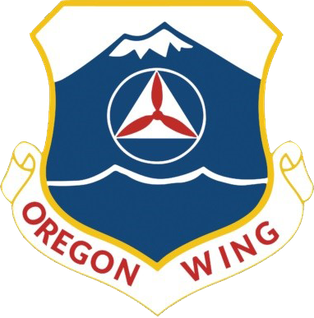
The Oregon Wing is one of six wings that comprise the Pacific Region and one of 52 wings in the Civil Air Patrol. It serves as the headquarters for Civil Air Patrol units in the state of Oregon. Oregon Wing headquarters is located in Eugene, Oregon. The wing itself oversees nearly 500 cadet and adult members serving with 13 squadrons or flights across the state of Oregon.
No. 1 Canadian Ranger Patrol Group is a patrol group of the Canadian Rangers.

The Los Angeles Police Department Cadet Program, known informally as the LAPD Cadets, is a cadet program run and sponsored by the Los Angeles Police Department for youth aged 13 to 17. The cadet program is similar in nature to the police explorer programs that are present in many police departments through the Learning for Life program.

Cadets or cadet corps are voluntary youth programs sponsored by a national military service or ministry of defence. These programs are aimed to provide youths with activities associated with military or paramilitary training, including drills, physical fitness, and education. Although these youth organisations are modelled after their sponsoring military service, they do not form a part of these services nor do they constitute a military service in their own right.















